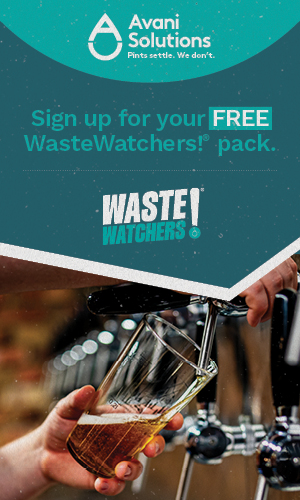- Speakers:
- Myles Bremner, former director of the School Food Plan
- Mark Davies, managing director, ISS UK Foodservice
- Laurence Guinness, chief executive, The Childhood Trust
- Ian McGrady, managing director, Edsential Community Interest Company
- Daisy Lainoff, National Food Strategy, head of citizen engagement & public procurement, DEFRA
- Jayne Jones, chair, ASSIST FM & commercial manager, commercial services, Argyll & Bute Council
- Mick Hickman, foodservice director, Compass Group UK & Ireland
- Julie Barker, non-executive director, College & University Business Officers
Key takeaways:
- Interventions on school food standards are a “mess”, with caterers left frustrated by the voluntary approach taken in the past two decades
- There is poor understanding of what’s working and what’s not
- Data is lacking on what exactly goes across the hatch to children every day and how money is being spent (and how much)
- Better measurement, more accountability and improved transparency are needed
- Quality should be prioritised over cost though work is need to define ‘quality’
As the first RBRF on catering in education highlighted: covid-19 has exposed the already stark reality for those struggling to make ends meet. But during that September discussion there was a clear desire to turn this negative narrative into a positive one. As one speaker suggested:
“Has covid given us all a wake-up call? [That] as a society we should be investing in nutrition of our children? It’s time to put good words and intention into action and move away from what is largely a commoditised market with a procurement approach that continues to drive a race to the bottom line … to actually do something meaningful that makes a contribution to the life chances of the young people that we serve.”
This latest forum picked up on this theme, looking at long-term change in relation to what children are fed, how and who picks up the bill.
If it’s broke, fix it
There was once a time when business would embrace the notion of voluntary agreements rather than red tape. Not anymore. Caterers and campaigners alike want school food standards mandated. Fewer than half England’s schools meet England’s current school food standards.
Millions of children are eating better and thousands of schools have a better food culture but the spectrum from those doing “amazing things” and those “struggling” has increased. Intervention has come in quantity but lacked quality.
“We’ve been subject to numerous challenges and interventions from government but not one followed through in a cohesive way. It’s a mess.”
Ministers and prime ministers have backed buying standards (2011) and new plans for public procurement (2014) with “lots of great words” but little has been achieved in the 17 years since the public sector food procurement initiative of 2003.
“The evidence should guide us and the evidence says that over last 20 years every time we’ve tried to do anything voluntary […] it hasn’t worked. We have a whole raft of standards that aren’t measured, aren’t mandated aren’t pushed.”
Those involved in the National Food Strategy have also found caterers playing by the voluntary rules feeling “disadvantaged” by adhering to the Defra scorecard when others don’t. A levelling of the playing field is needed.
It is worth noting that part two of the National Food Strategy, due next year, will include a comprehensive recommendation on what the government can do to ensure the food the state pays for directly – for example in schools, hospitals in prisons and government offices – is both healthy and sustainable.
This should not start and stop at the school gates; nor should it be confined to term times – as the campaign led by March Rashford has highlighted.
“Our schools service is set up for term-time provisions: staff are on term-time contracts. So expecting existing term-time provisions to be the centre of non-term time provision needs a great deal of thought (because it has evolved over time to be as efficient as it can during term time).”
Accountability
“In an optimal system you would know the meals delivered [and the] quality, rather than just pouring money into a hole and hoping the job gets done.”
There is an argument that the last thing headteachers need is more bureaucracy. But this perhaps underplays the significance of food in schools and society – as well as the positive role inspectors can play, according to those working in Scotland under a different system.
“We should be putting meals on plate that are good for nutrition, good for our communities, good for planet and filling those hungry bellies.”
The question was posed: is too much left to the individual school and the priority its headteacher and governors place on provision of food? There was a reluctance to criticise schools for minimising spend on food so they can deal with shortfalls in other areas. Indeed, the bubble of positivity that came out of the school food plan was burst by austerity.
“Reliance on individual head teachers with a whole host of other priorities and responsibilities has probably meant there has been a dilution of strategy, policy and focus around school food in lots of schools.”
Accountability became a key discussion point. Reporting publicly on the money being spent on food and food-related activities, such as education and cooking, on school websites “will make a big difference”, as it has done with other premiums.
There was also a call to create an “accountability environment” that says schools are going to take their responsibility seriously. The partners delivering those services also need to buy into those objectives and be “equally accountable”.
“Food providers and operators follow markets and if the market says we want it cheaper you get what you pay for so there will always be a dilution if schools want to pay less for their food – in quality, in sustainability, in service provision.”
Research being funded by Guy’s and St Thomas’ charity includes the following recommendation: like other premium payments made to schools, governors should publish annual reports on what the school has done to show how children’s nutritional needs are being met.
That research is also recommending a minimum of 60% quality and 40% cost in all school food contracts. A change in procurement guidance and regulation so that quality is given higher scoring than cost in school food contracts would “at a stroke” improve funding all the way through the school meal supply chain.
“We want to galvanise our recommendations and schools, caterers, campaigners together around the charge of a school food premium as it plays to current narrative and does enable us to have a sharp focus as we build ourselves better out of covid.”
Doing the maths
That will be music to the ears of caterers. Understanding school food funding is complicated though. With all the different interventions in place the school food landscape has become muddled. It’s also a struggle to find accurate data – for example total spend on food in the public sector. (Some papers put hospital food spend at £7bn, whereas in others it is £28bn).
Figures on school food spend were presented at the forum, as follows:
| Intervention | English Government spend 2019/20 |
| Benefits-related free school meals | £633.9m |
| Free school meals supplementary grant | £78.5m |
| Universal infant free school meals | £609.9m |
| National school breakfast scheme | £11.8m |
| School fruit and veg scheme | £40m |
| Food education ingredients | ? |
| Milk | £20m |
| Total | £1,394.1m |
The current use of census day as the only proxy for recording school meal take-up can often “skew” the real world picture of how many children eat school meals every day. Funding should be based on an appropriate balance of eligibility and possible take-up.
“You need to look at what’s being consumed, the quality and whether there’s value for money. The school food plan went to great lengths to ensure the quality of meals was of a sufficient standard. I think that needed to go further in terms of measuring what goes across the hatch every day to children. If you don’t do that you don’t know what’s happening.”
Datasets were seen to be “shaky and challenging to collect”. Understanding of the supply chain right through to the child eating the food is “flawed”, noted one speaker, which “gives a sense of jeopardy to any recommendations in future if we are exposing what is an inefficient system”.
“In the UK we are not effectively measuring levels of food insecurity or food poverty among children. Until we do that accurately outside the school environment we don’t know the scale of the problem, the nutritional enhancement that needs to be provided. We are guessing.”
Nationally the government celebrates that 89% of five, six and seven year olds eat a free school lunch every day. Broadly however the figure is likely to be closer to 70 or 75%. As such, there is money in the system that isn’t being directly apportioned into the school food system. That money is being put to good use by schools but it isn’t for the original policy intent.
Better transparency would help: “We want accountability not instruction,” as one speaker said. There appears to be consensus that schools must be able to demonstrate how they are meeting nutritional and food needs for their pupils but this shouldn’t stifle creativity and innovation.
There is a “pressing urgency” to reform standards to help understand and measure what children are eating as opposed to the adherence of standards in published.
“Various analyses have shown that it is easier to show in a menu you are meeting the standards but if you go to a secondary school and have absolute choice of what children can eat they are almost meaningless.”
Much rests on part two Henry Dimbleby’s National Food Strategy. But there was a warning that this can’t be led by policy alone. Dimbleby has said before that excellence does not come through government decree – it takes will and skill of everyone involved to make things happened.
Skills in procurement are lacking, some argued. School business managers need and want better support in procurement, more generally but also in relation to food. Think about what has happened with PPE procurement during the pandemic, for example.
“I don’t think the public sector has invested in the way it should be in order to provide the really high quality procurement it needs.”
However, the will is there for change. Will ministers, finally, see it and embrace it?









